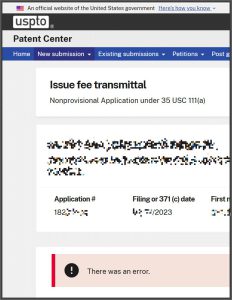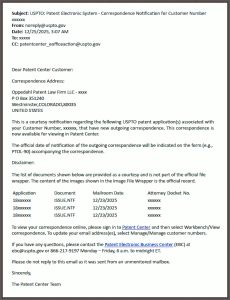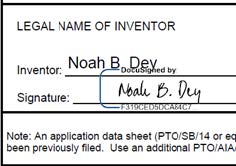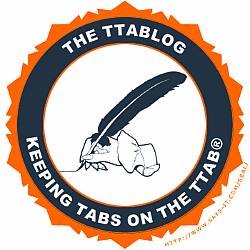Oppedahl Patent Law Firm LLC (“OPLF”) sponsors many listservs (email discussion groups for intellectual property professionals, here is a list of them), some with over a thousand members. In recent days, hundreds of members of the listservs have started to receive email messages that prompted questions, such as:
I received an email, and I need to know whether it is a phishing hack. If it’s legitimate, I will respond accordingly.
Another listserv member responded:
Got same thing yesterday. Is real. The question is why.
What do these emails mean? Why are the listserv members receiving the emails? How should listserv members respond? In this blog posting, I try to answer these questions. Continue reading “Should the listserv member click on the link? Is it spearphishing?”




 On March 22, 2024 the USPTO published a Federal Register Notice saying that the USPTO would start accepting electronic signatures generated by some commercial e-signature platforms without any requirement that virgules (forward slashes) be incorporated into the e-signature. You can see, at right, an e-signature generated by one particular commercial e-signature platform. If you were to e-file the document quoted at right, would the USPTO bounce it or accept it? In this blog article I discuss in detail the various USPTO communications to try to work out the answer. Spoiler alert — it turns out to be impossible to know what the USPTO will and will not accept. Bigger spoiler alert — one assumes that TYFNIL this will be a fertile area for summary judgment practice and the like.
On March 22, 2024 the USPTO published a Federal Register Notice saying that the USPTO would start accepting electronic signatures generated by some commercial e-signature platforms without any requirement that virgules (forward slashes) be incorporated into the e-signature. You can see, at right, an e-signature generated by one particular commercial e-signature platform. If you were to e-file the document quoted at right, would the USPTO bounce it or accept it? In this blog article I discuss in detail the various USPTO communications to try to work out the answer. Spoiler alert — it turns out to be impossible to know what the USPTO will and will not accept. Bigger spoiler alert — one assumes that TYFNIL this will be a fertile area for summary judgment practice and the like.  Thanks to John L. Welch’s hundreds of blog articles about 2d refusals, I have gotten to the point where sometimes I can guess correctly the outcome of an ex parte appeal of a 2d refusal. The alert reader might ask:
Thanks to John L. Welch’s hundreds of blog articles about 2d refusals, I have gotten to the point where sometimes I can guess correctly the outcome of an ex parte appeal of a 2d refusal. The alert reader might ask: CNN launched on June 1, 1980. Only now, 45 years later, has CNN become available “
CNN launched on June 1, 1980. Only now, 45 years later, has CNN become available “